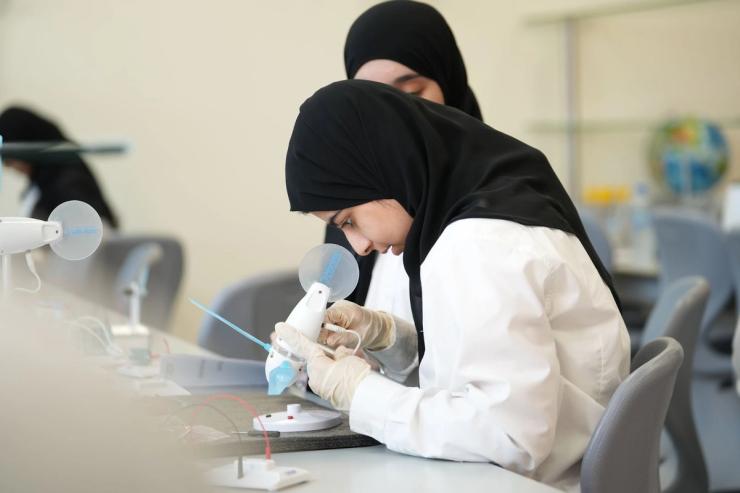The News
The UAE will overhaul its education system for the artificial intelligence age, becoming one of the first nations in the world to mandate AI learning as it looks to harness the technology to improve outcomes and combat disengagement in classrooms, its education minister said.
AI will be taught in all public and some private schools at the start of the next academic year in the fall — reaching as many as 400,000 students — with around 20 lessons initially planned for each grade year, from Kindergarten through Grade 12, Sarah Al Amiri told Semafor in an interview.
The strategy calls for students to design their own AI systems while learning about bias and algorithms; explore ethical use and issues of plagiarism; and practice prompt engineering with real-world scenarios. Lessons range in complexity from early learners discussing what robots are and how they might be useful in daily life, to developing machine learning algorithms in later years.
Know More
Al Amiri, who became the UAE’s Education Minister last year and previously served as the Minister of Advanced Technology, emphasized the curriculum is not final, and that the country’s education regulator would annually evaluate students’ progress and the relevance of lessons.
The effort is part of broader reforms to introduce AI tools in the national education system, including using AI to deliver personalized education and to improve operations. Two of the UAE’s largest AI firms, G42 and AI71, are developing products for the new curriculum.
“[Students] felt like there was a big gap in what they were interested in and what they were being taught,” Al Amiri said. “When you spoke to them, they had a lot of information, a lot of interests, and a lot of aspirations. But when you see them in the classroom, there’s a glimmer or a sort of passion that’s not there. And I realized very early on that they’re disengaged.”
Kelsey’s view
One of my first questions was about screen time, a topic that’s top of mind for any parent who has ingested the data from Jonathan Haidt’s bestseller The Anxious Generation and resolved to maybe allow their kid a smartphone when they turn 18 (maybe). Will adding AI tools and lessons into classrooms lead to a spiraling of time in front of a screen?
Al Amiri said that even with the new curriculum, no student would be given a screen to learn from until the fifth grade, when they are around 10. The number of lessons focused on AI have also been intentionally capped to minimize additional computer use. But the use of technology in schools is unavoidable, she said.
“Social media is a fact. The [use of] AI is a fact,” Al Amiri said, adding that the education system had failed students in adapting to the advent of social media. The new curriculum is meant to correct for some of these systemic failures, she said, and reengage students. “I want it to be fun for them,” she said.
Room for Disagreement
Arguments against broad adoption of AI are starting to emerge. In an upcoming book, The AI Con: How to Fight Big Tech’s Hype and Create the Future We Want, American researchers Emily Bender and Alex Hanna argue the industry is overhyped, insisting that the paradigm shift many predict from AI is not inevitable as Silicon Valley evangelists claim. Their recommendation is to refuse to use AI services altogether.
The View From South Korea
South Korea began introducing digital textbooks, which personalize teaching materials to a student’s performance in real time, in March, covering English, math, and Korean for special education. The plan is to expand to additional subjects like social studies and science, with the smart textbooks in all schools by 2028.
Notable
- Saudi Arabia has launched an “Introduction to AI” course for high schoolers, Gulf News reported.
- US President Donald Trump signed an executive action to boost AI education and workforce training last month, Bloomberg reported.
Correction
An earlier version of this article stated that Sarah Al Amiri was previously Minister for Industry and Advanced Technology. She was Minister for Advanced Technology.


